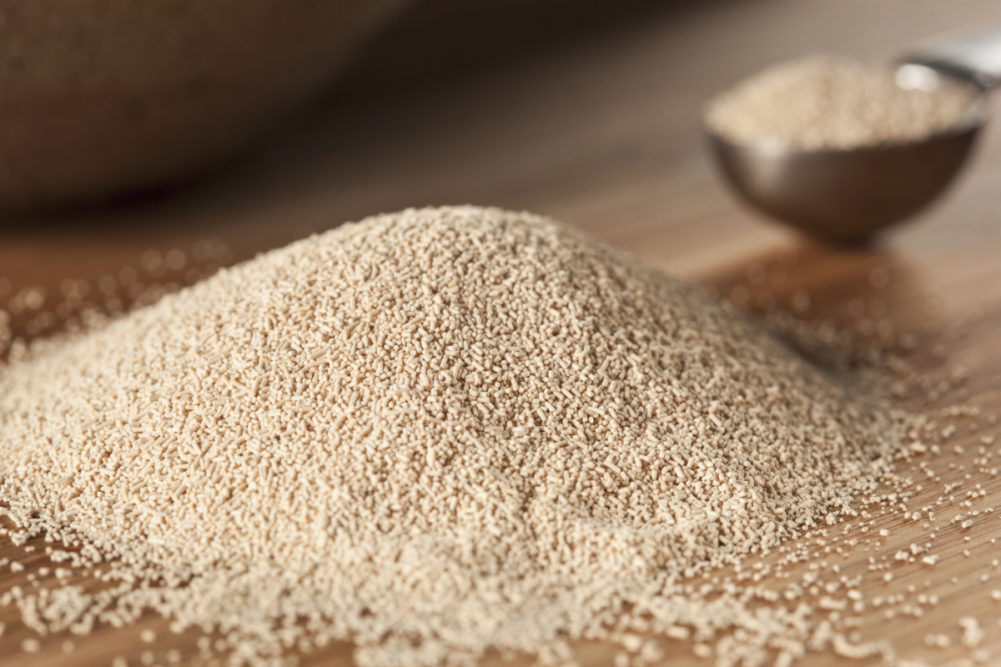KANSAS CITY — Baking ingredient suppliers contacted by Milling & Baking News said they were still able to meet demand despite the ongoing coronavirus (COVID-19) outbreak.
Lesaffre, which is active in yeasts and fermentation, continues to meet orders.
“All plants are fully operating,” said Bill Haynes, vice president of marketing and strategy and based in Milwaukee. “We are filling orders as quickly as we can to help bakers satisfy demand. We do not see a concern to meet orders once this initial surge has passed although it may take some weeks to refill stocks, especially for some specialty items.
“We take seriously our critical role in supplying the food that people need. We are extremely proud of the efforts of our teams of people who are eager to do their part to help others.”
Cain Food Industries, Inc., Dallas, supplies ingredients like dough conditioners and mold inhibitors to the wholesale and retail baking industries.
“To date, we have not had any issues, and we look pretty good for the next couple of months,” said Tom McCurry, chief executive and partner. “If we go out much past that, it is a little hard to tell. However, at this point all of our suppliers are telling us we are in good shape. That added to the additional inventory we put in place when we saw this coming has us in a pretty good position for a while.”
Corbion, which has a US office in Lenexa, Kan., provides emulsifiers and other ingredients to the baking industry.
“So far, the pandemic has not prevented us from delivering on our commitments to customers,” said Belinda Roberts, vice president of global procurement. “We have been monitoring the situation very closely since the initial outbreak in China, but for now, based on our most recent assessments, we don’t anticipate interruptions in our ability to supply any of our products.”
Corbion has stayed in touch with its raw material suppliers.
“We have also worked to identify alternate sources we can turn to in the event that our current suppliers are unable to meet our needs, in addition to reviewing both our stock levels and in-country stock levels,” Ms. Roberts said.
St. Louis-based AB Mauri North America, a business of AB Mauri, sells yeast under the Fleischmann’s brand name as well as bakery ingredients like dough conditioners and mold inhibitors.
“Demand for bakery ingredients is up strongly across all ingredient categories as consumer demand has both shifted from foodservice to retail and surged at the very same time,” said Mark Prendergast, president of AB Mauri North America. “Our whole industry is in uncharted territory, and volatility is the norm as we confront the crisis. AB Mauri enjoys strong relationships with our supplier partners and together with outstanding performance from our manufacturing sites and all of our people, AB Mauri is meeting this much higher customer demand.”
Lallemand, Inc., Montreal, develops, produces and markets yeast, bacteria and specialty ingredients. COVID-19 has not caused any supply interruptions, said Mark Worthey, corporate director of procurement and supply chain.
“We remain sensitive to possible future interruptions and continue to probe the supply chain for potential risk areas,” he said.
He said Lallemand is confirming approved secondary sources of raw materials for contingent supply, increasing in-plant inventory levels, and increasing communications with suppliers to both give and receive updated information. Increased demand for certain ingredients has been met through existing inventory levels of raw materials. Contracted quantities of raw materials were brought into locations controlled by Lallemand such as plants and warehouses once the spread of the virus made it evident to reduce reliance on supplier performance in future months, Mr. Worthey said.
COVID-19 has not hindered delivery of ingredients from London-based Tate & Lyle, PLC to its customers, said Mickie French, vice president, global marketing, global pandemic response team for Tate & Lyle. The company’s manufacturing plants, laboratories and warehouses remain in operation, she said.
“Tate & Lyle is taking proactive steps to work with our transportation partners and all customers across the globe to provide them with the necessary support for timely delivery of our ingredients,” Ms. French said.
Tate & Lyle is working with customers to determine their changing needs.
“As a leader in the food ingredients industry, Tate & Lyle has built a reliable, global supply chain to deliver the supply assurance our customers count on, part of which includes having inventory in place to ensure sufficient supply capability across our global supply chain,” Ms. French said.
A good sign for palm oil supply came in comments from Malaysia. The COVID-19 pandemic is not having a large impact on that country’s oil palm industry as it continues to be supported by local and international demand, commercialization of downstream products, exploration of new markets as well as government initiatives, according to the Malaysian Palm Oil Council, Kuala Lumpur.
Workers in the plantation and commodities sector have been exempted from Malaysia’s Movement Control Order, which means they are allowed to work under certain conditions.
“There is a probability that the virus spread could affect the plantations and smallholders, as those who are considered as potential COVID-19 carriers are required to at least undergo quarantine for 14 days, which will disrupt the harvesting activities,” said Ahmad Parveez Ghulam Kadir, PhD, director-general of the Malaysian Palm Oil Board. “If this situation is prolonged, CPO (crude palm oil) production will be affected, and it will also affect palm oil exports as Malaysia is currently facing tight supply to fulfil global demand.”





